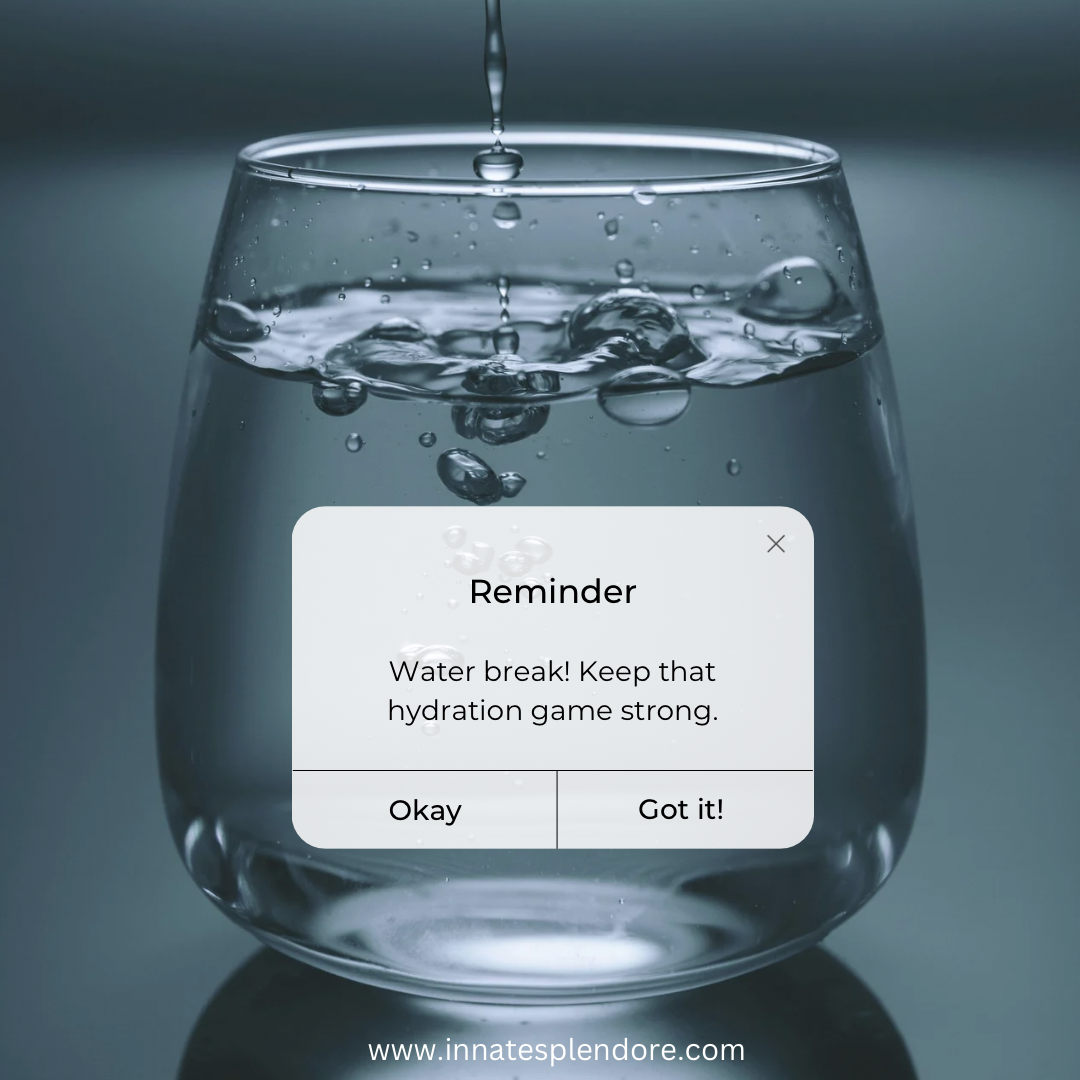We often hear the phrase “stay hydrated,” but how much do we really understand the impact of water on our daily lives? Staying hydrated is vital for maintaining our body’s balance and overall well-being. Our bodies are made up of around 60% water, which plays a crucial role in almost every function. From regulating body temperature to flushing out toxins, hydration affects more than we realize. In this blog, we’ll dive into why hydration matters and how you can make sure you're drinking enough water.
Why Staying Hydrated Is So Important
-
Supports Vital Functions
Water is involved in nearly every cellular process in your body. It helps transport nutrients, removes waste, cushions joints, and ensures that your muscles, organs, and tissues function properly. Dehydration can impair all of these processes, leading to a range of health issues. -
Improves Physical Performance
Whether you're hitting the gym or going for a jog, hydration plays a significant role in your physical performance. Dehydration can cause fatigue, reduce endurance, and increase the risk of injury. When you're well-hydrated, your body functions at its best, allowing you to push harder and recover faster. -
Boosts Mental Clarity
It’s not just your body that needs water — your brain does, too! Even mild dehydration can lead to difficulty concentrating, mood swings, headaches, and decreased cognitive function. Staying hydrated can help keep your mind sharp and improve focus. -
Regulates Body Temperature
Water helps regulate your body temperature by dissipating heat through sweat and maintaining a stable internal environment. If you're dehydrated, your body may struggle to cool down, especially during physical activity or hot weather, increasing the risk of heat exhaustion or heatstroke. -
Promotes Healthy Skin
Dehydration can lead to dry, flaky skin and exacerbate skin conditions like acne or eczema. Drinking enough water keeps your skin hydrated from the inside out, promoting a healthy, glowing complexion. -
Aids Digestion
Water is essential for the proper digestion of food. It helps break down food, making nutrients easier for your body to absorb. It also prevents constipation by softening stools and promoting regular bowel movements.
How Much Water Do You Need?
The amount of water each person needs varies depending on factors like age, activity level, and climate. A common recommendation is to drink at least eight 8-ounce glasses of water a day — that’s about 2 liters or half a gallon. However, some people may need more, especially if they’re exercising, spending time in hot weather, or pregnant.
A good rule of thumb is to listen to your body. Thirst is an obvious sign, but you should also pay attention to other indicators like dry mouth, fatigue, or dark-colored urine. If your urine is pale and clear, you’re likely well-hydrated.
Tips for Staying Hydrated
-
Carry a Water Bottle
Make it a habit to carry a reusable water bottle with you everywhere you go. This way, you’ll have water on hand whenever you need it, and it’ll remind you to drink more frequently. -
Set Reminders
If you often forget to drink water, set a timer or an alarm on your phone to remind you to take a sip every 30 minutes or so. You could also use a hydration-tracking app. -
Flavored Water
If plain water doesn’t excite you, try adding a slice of lemon, lime, cucumber, or berries to enhance the flavor. This can make it more enjoyable to sip throughout the day. -
Eat Water-Rich Foods
Many fruits and vegetables have high water content, such as watermelon, cucumbers, oranges, and strawberries. Eating these foods can help you stay hydrated, especially when you’re not feeling thirsty. -
Hydrate Before You’re Thirsty
By the time you feel thirsty, your body may already be mildly dehydrated. Try drinking water regularly throughout the day to stay ahead of thirst. -
Monitor Your Intake
Keep track of how much water you drink each day. Some people find it helpful to use a water-tracking app or a water bottle with time markers to track their progress.
Signs of Dehydration
It’s essential to recognize the early signs of dehydration to prevent further health problems. Some common symptoms include:
-
Dry mouth or tongue
-
Fatigue or weakness
-
Dark yellow urine
-
Dizziness or lightheadedness
-
Headaches
-
Reduced skin elasticity (skin doesn’t bounce back when pinched)
If you experience any of these symptoms, it’s important to drink water right away. Severe dehydration can lead to more serious issues, such as kidney problems, urinary tract infections, and electrolyte imbalances.
Conclusion
Staying hydrated is one of the easiest ways to maintain good health, improve your physical and mental performance, and feel your best every day. By making hydration a priority and incorporating small habits into your routine, you can ensure that your body stays properly fueled and functioning at its peak. So next time you reach for that bottle, remember that it’s more than just a drink — it’s a key to a healthier, happier you. Drink up!


